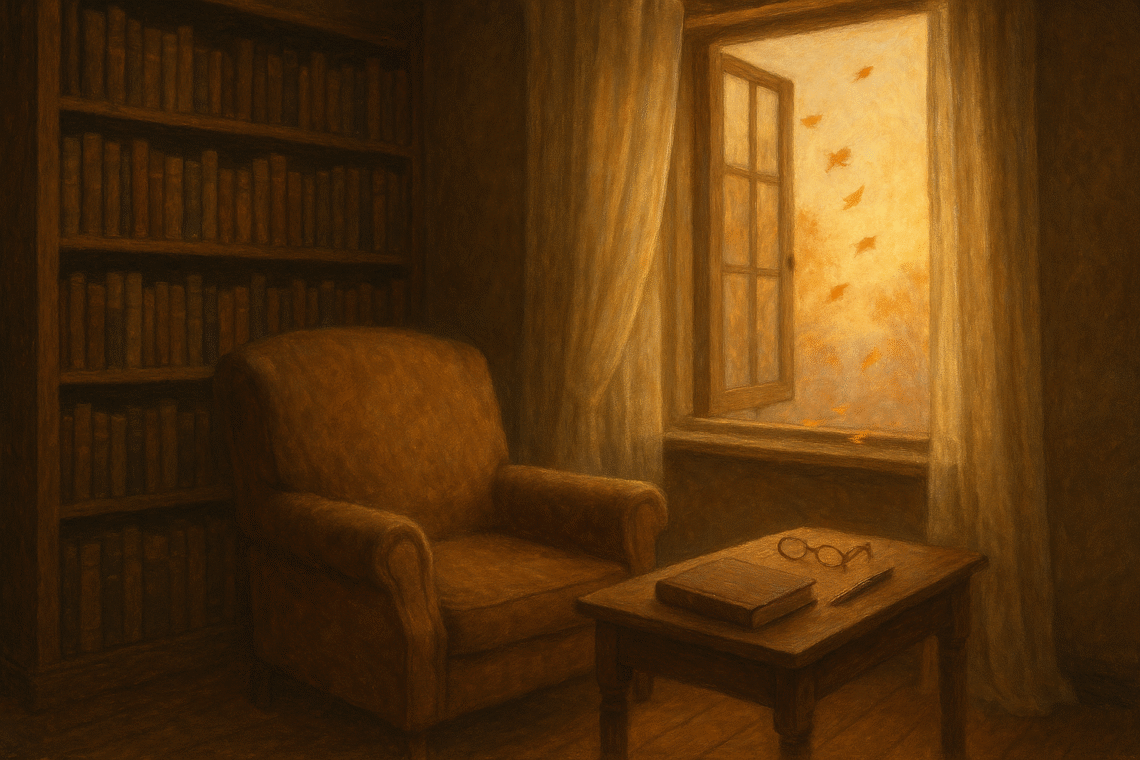There is a moment, sometime in the quiet hours just before dawn, when the mind slips unbidden toward those who once taught us how to speak. Not merely how to pronounce or conjugate, but how to use words to shape thought, to reach across despair, to lift the veil on what matters.
Our heroes, now gone,some recently, some long ago,leave behind not only a silence, but a disorienting echo. Their voices, once steady companions, have become relics and reminders, books on shelves, DVD recordings in archives, underlined phrases in old journals. Their cadence still rings in our ears, but they no longer walk beside us to answer the questions we’ve only just learned how to ask.
The death of our heroes marks more than a personal loss; it signifies a tectonic shift in our interior geography. Without them, we are left to navigate with only the residue of their vision. And so, we are faced with the aching question: What do we do with the legacy of their words?
Some of us were raised on the lyrical cadences of prophets and poets, the searing clarity of dissidents, the gentle wisdom of spiritual elders. Their words braided themselves into our bones. They shaped our imaginations before we had the tools to understand them. They formed a grammar of resistance, of hope, of truth-telling, that we carried like a second skin.
We learned how to inhabit language through them. How to name injustice without bitterness. How to dream of a better world without naïveté. How to speak with tenderness even in confrontation. Language, in their mouths, was not just a tool,it was a vocation. A calling.
But now, their absence leaves us unsure. Not only of what to say, but of how to speak at all.
It is tempting, in our grief, to entomb them in reverence,to quote them endlessly but forget to risk our own voice. Or, perhaps worse, to weaponise their words for a time they never lived to see.
But we are not called merely to preserve their language. We are called to enter into dialogue with it. To test it against the new winds, to let it stretch and strain and grow as it encounters unfamiliar terrain. Their words were not sacred scripts to fossilise, but seeds,meant to take root in different soil.
If language formed us, it must also form those who come after. And for that, we must learn to speak again,not only in their memory, but in their spirit.
The world now speaks in dialects our elders never knew. Memes and algorithms, hashtags and virtual soapboxes. Sometimes these new voices seem shallow or shrill, but then again, so did the prophets to the priests of their day.
To honour our heroes is not to filter every new voice through their orthodoxy. It is, rather, to ask: Does this voice carry the same courageous sincerity? The same willingness to risk comfort for truth? To reach across difference for love?
We do not betray our mentors by listening to new voices. We betray them only if we forget that they, too, once spoke into a silence,boldly, originally, without permission.
So here we are: scattered inheritors of vanished prophets, tentative stewards of borrowed speech.
And perhaps that’s all right. Perhaps it is in this fragile space between silence and speech, between grief and new articulation, that we begin to sense what remains.
Their language as imperfect, noble, and trembling as it was, echoes still. It calls us not to imitation, but to participation. To let the river of speech carry us,forward to find our own voice, in the long and reverent conversation they began.
Let this prologue be an invocation, then.
To all who have loved and lost a voice that once made the world feel less uncertain,
To all who feel orphaned in the lexicon of justice, wonder, and truth,
To all who wonder if their words are enough,
Speak anyway.
Speak humbly, speak honestly, speak imperfectly. But speak.
In the silence left by the great ones, we find the fragile, flickering possibility of something new.
And that is holy ground.





